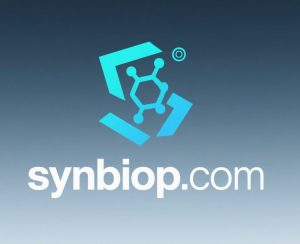
SynBioP: Analysis and Hypothetical Definitions
SynBioP is likely a portmanteau combining SynBio (short for Synthetic Biology) and the letter P. Based on linguistic structure and industry naming conventions, its potential meanings could include the following directions:
I. Etymology and Hypothetical Definitions
- SynBio (Synthetic Biology):
- Refers to the discipline of designing or reconstructing biological systems through engineering approaches, encompassing gene editing, metabolic engineering, and artificial life design.
- Possible Meanings of “P”:
- Project: A research initiative or cross-institutional collaboration (e.g., the “SynBioP Project”).
- Platform: A technical tool or resource repository (e.g., gene design software, strain databases).
- Product: Commercialized outputs like enzymes, engineered strains, or biomaterials.
- Plant: A subfield focused on plant synthetic biology (e.g., SynBioP for crop engineering).
- Pharmaceutical: Technologies targeting medical applications (e.g., drug production or delivery systems).
II. Potential Applications
- Research Initiatives:
- Government/Academic Programs: Examples include subprojects under the EU Horizon program or university-led research (e.g., SynBioP developing novel nitrogen-fixing microbes).
- Technical Platforms:
- Gene Design Software: Cloud-based platforms integrating CRISPR tools, metabolic pathway simulation, and automated experimentation.
- Modular Bio-Part Libraries: Open-access databases offering standardized genetic components (e.g., promoters, reporter genes).
- Commercial Products:
- Engineered Strains: Microbes for biomanufacturing (e.g., SynBioP-001 producing biodegradable plastics).
- Enzyme Catalysts: Customized enzymes to enhance biofuel efficiency (e.g., SynBioP cellulases).
- Vertical Domains:
- Agricultural SynBio: Engineering stress-resistant crops or nitrogen-fixing microbes (e.g., SynBioP wheat yield enhancement).
- Medical Applications: Synthetic gene circuits for disease treatment (e.g., SynBioP-CAR cancer therapy).
III. Industry Case Studies
- SynBio4Flavours (EU Project):
- Produces food flavors via synthetic biology, analogous to SynBioP’s potential in the food sector.
- Ginkgo Bioworks (Platform Company):
- Offers cell programming and strain design platforms, resembling SynBioP as a technical tool.
- Zymergen (Product-Centric):
- Develops engineered microbes for specialty chemicals, aligning with SynBioP’s product-line focus.
IV. Challenges and Controversies
- Lack of Standardization:
- Compatibility and predictability issues of biological parts hinder complex system construction.
- Ethics and Safety:
- Environmental risks of engineered organisms (e.g., horizontal gene transfer).
- Commercialization Barriers:
- High costs and scalability challenges in transitioning from lab to industrial production.
V. Future Directions
If SynBioP represents an emerging technology or project, its development may focus on:
- AI-Driven Automation: Machine learning to optimize gene circuits and metabolic pathways.
- Carbon Neutrality: Engineering carbon-fixing microbes or bioenergy solutions.
- Interdisciplinary Integration: Merging with materials science and electronics (e.g., biosensors, living robots).
Conclusion
SynBioP could denote a project, platform, or product within synthetic biology, with its core logic centered on solving industrial, medical, or environmental challenges through engineered biological systems. It exemplifies the transition of synthetic biology from foundational research to real-world applications.
If you are interested in purchasing this domain, please contact: chuanchuan810@gmail.com





